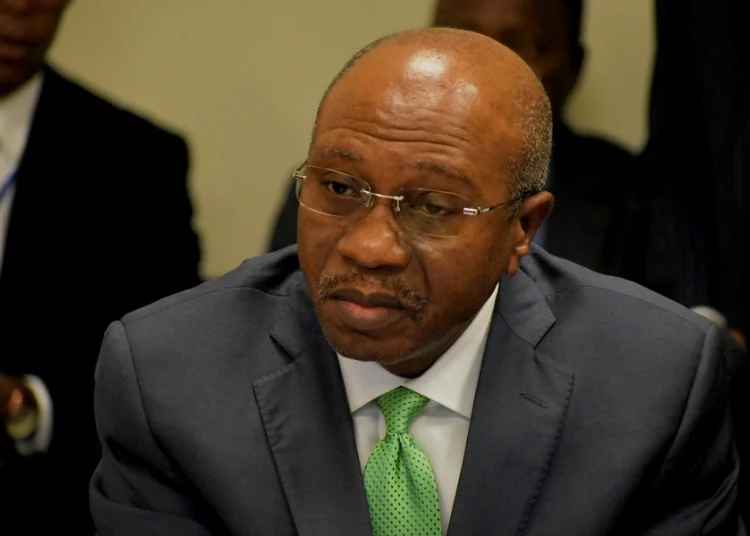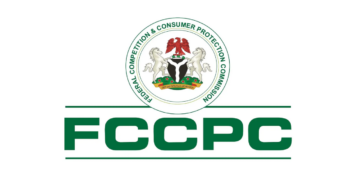The decision by the Monetary Policy Committee (MPC) to maintain a hawkish stance and increase benchmark interest rate has continued to raise dust not only in the financial industry but also among the organised private sector operators who feel the hike will further hamper their access to credit.
For the second time this year, the MPC has raised rates in a bid to curb the fast rising inflation in the country. Rising from its two-day meeting last week the committee raised Monetary Policy rate by 100 basis points to 14 per cent from 13 per cent, whilst retaining the asymmetric corridor at +100 and -700 basis points around the MPR, retain CRR at 27.5 per cent, and the liquidity ratio at 30 per cent.
Its major reason for the hawkish stance being the soaring inflation which has risen to 18.6 per cent as at June 2022, figure that is projected to further rise in July with the average for the year expected to hover at around 18 per cent.
According to the CBN governor, the MPC has decided to continue to raise benchmark interest rate as long as the inflation in the country continues to rise. However, analysts and operators in the private sector say this decision is harmful to the growth of the economy.
With the 150bps rate hike in May which brought the MPR to 13 per cent from 11.5 per cent, banks had readjusted their lending rates. Lending rates before the rate hike in May this year hovered between 12 and 40 per cents but as at July 15, lending rates was between 12 and 44 per cents in the banking industry.
According to the founder and chief executive of the Centre for the Promotion Of Private Enterprise (CPPE), Dr Muda Yusuf, the tightening would only worsen the plight of those in production and many entrepreneurs in this economy.
Noting that the move will lead to a hike in lending rates, he stated that many entrepreneurs and manufacturers are already indebted to the banks “and that means the banks will now be reviewing the terms of the credit.
“That is what happened the last time when MPR was hiked by 150 basis points. So it is going to go higher now, and the thing is that it is not likely to have any impact on inflation. MPR was increased two months ago. Between then and now, inflation even went higher. Because this economy is not a credit driven economy.
“Therefore, you cannot use monetary policy tools to correct an inflationary problem that is created by supply side issues. You won’t get any concrete results, it will just make life more difficult for those who are investors in the economy who are already battling so many other problems. They are battling with problem of diesel costs, high electricity tariff, exchange rates depreciation, high inflationary pressures and weakening purchasing power. So on top of that, you’re increasing the cost of their credit. So I don’t think this is good for the economy because the economy is not so much of the credit driven economy.
“Private sector credit to the economy as a percentage of GDP in Nigeria is less than 20 per cent. In South Africa it is over 100 per cent. In the United States, which we make reference to on policy tightening is over 200 per cent. That shows the amount of credit that is in the hands of the private sector compared to what we have in Nigeria. So it is not going to it’s not going to achieve much in my view. What we need to do is to focus on the supply side issues. Let’s see what you can do about these high cost of diesel. We need to use fiscal policy measures like import duty and tariffs to look at what we can do. We need to fix our refineries. Let us look at what we can do about foreign exchange, which unfortunately the CBN did not even address sufficiently.
“We have a gap of almost N200, 50 per cent premium between the official window and the parallel market window. MPC did not even make any reference to that. That’s a major crisis. We also need to address our problem of insecurity, which is fueling food inflation because people cant go to farms. That we need to address the degree to which the CBN is funding the deficit of government. That is huge from the reports that we see and it’s highly inflationary as well,” he stated
On his part, the head, Financial Institutions Ratings at Agusto & Co, Ayokunle Olubunmi, stated that, the further hike is not likely to have any effect on taming inflationary pressures in the country. noting that, the decision of the MPC to further tighten had caught everybody by surprise. He said: “we were of the opinion that they would hold the rates at least for now, at least for this meeting and then we would probably see a hike from the next meeting but they caught everybody by surprise.”
With the CBN governor saying the tightening will continue as long as inflationary pressures remain, Olubunmi said: “the question then is to what extent will the CBN continue to hike rate. The challenge of the inflation that we have in Nigeria is not demand push but supply driven and it is mainly from the forex and other things.
“I don’t think this is going to tame inflation because despite increasing the MPR by 150bps at the last meeting, we still see that the rate on treasury bills is still very low. The rate on treasury bills is still being artificially managed, although banks have tried to increase their rates but the yield on the treasury bills is still low.
mary, I don’t think it is going to be significant in taming inflation.
“This is because what is driving inflation is not excess supply of cash, although probably what the CBN is trying to do is to see if the rate in the domestic market is high, it might discourage people from moving into dollar investment, keep more money in the economy and reduce pressure on the exchange rate and reserves.
“In terms of directly taming inflation, I doubt if it is going to work. The higher the rates, it would adversely impact GDP growth because it will be more expensive for people to borrow and if it is more expensive for people to borrow then it will adversely affect economic growth.
Also, analysts at Cordros in an emailed note said: “before this meeting, we expected the Committee to keep the key policy rate unchanged to allow previous policy actions to fully permeate the economy while using the development finance initiatives to ease supply constraints. However, although the Committee agreed with our thought that the last hike had not permeated enough in the economy, we believe the decision to hike must have been induced by the sharper month-on-month inflation reading in June.
“The higher month-on-month increase points that further strengthening of monetary policy tightening is needed to effectively curtail the unabating inflationary pressures. Moreover, we think the MPC is trying to be proactive – moving ahead of the US fed which is expected to increase its key policy rate by 75bps at its next meeting on 27 July – to ensure that the impact on the domestic economy would be limited.
“Indeed, the Committee highlighted that the tightening was needed given the need to (1) signal a strong determination of the bank to aggressively address its price stability mandate and (2) narrow the real interest rate gap. Further out, the Committee highlighted that though output growth remains fragile, not containing the rising consumer prices now could derail the moderate gains achieved in improving consumer purchasing power, worsening poverty levels. Thus, the Committee advised the CBN to continue to use its development finance initiatives to ensure that output growth remain in focus.
“Overall, we think the pace of monetary policy tightening by systemic global central banks at their July policy meetings and what happens to global growth and inflation afterwards would provide the much-needed guidance as to how the MPC would react going further into the year. If global inflationary pressures persist and recession is avoided in key economies, we would expect global central banks to march on with the aggressive rate hikes to combat the unabating inflationary pressures.
“In that case, we envisage that the MPC would raise the MPR by 50bps at the September policy meeting to limit external pressures in the face of rising yields in advanced economies. However, if recession is not avoided in advanced economies, we expect the global central banks to slow down their interest rate hiking cycle. Thus, we would expect the MPC to hold off increasing the MPR until the November policy meeting as it tries to ease the burden on government borrowing costs.”





